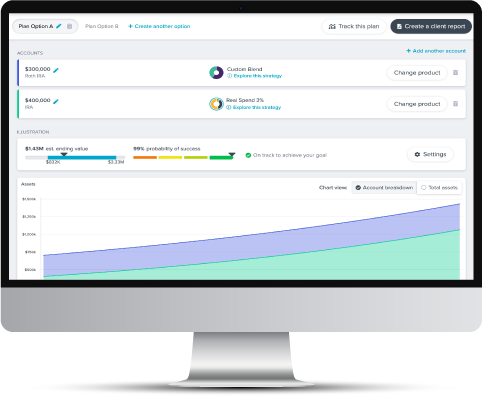- Services
How we help advisors guide clients through their life journeys
Intuitive technology that supports advisors
- Solutions
Horizon’s innovative investment framework
Outsourced CIO (OCIO) consulting solutions
Customizable actively managed single-stock portfolio
Intuitive, user-friendly planning software
Goals-based investing with Horizon Funds and ETFs
- Insights
Our latest thoughts, in and on the media
Our regular look at the market’s most revealing number
Our in-depth thinking on goals-based investing
- Who We Are
What we do—and why we do it
Our culture and open positions
Meet our leadership team
